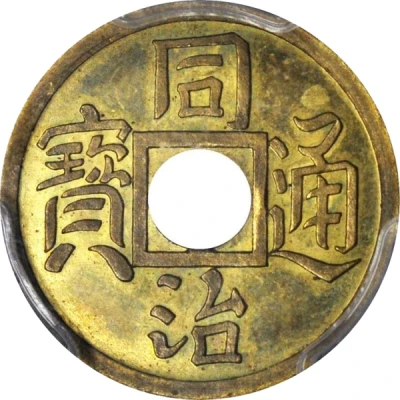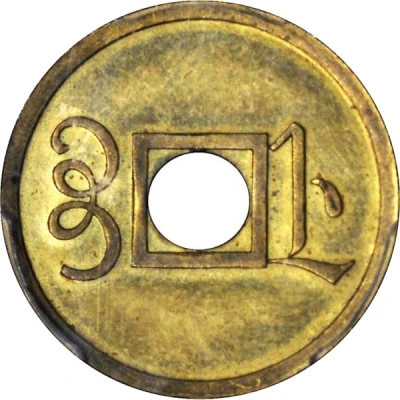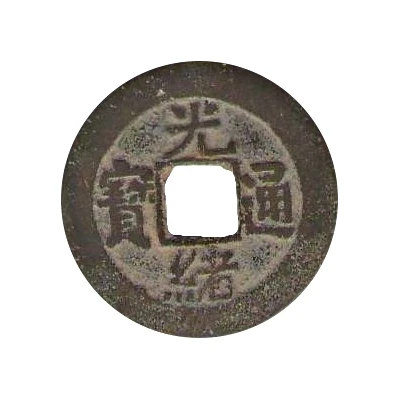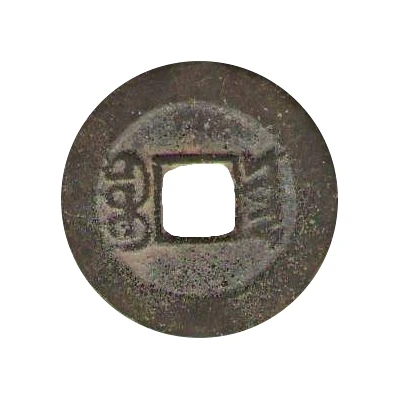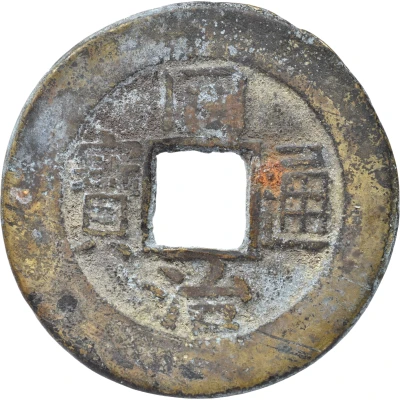
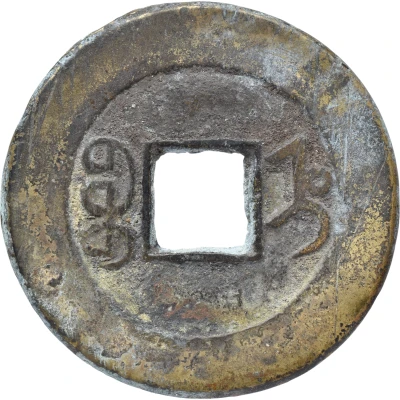

© Ollisaarinen (CC BY)
1 Cash - Tongzhi Tongbao; Boo-jyi ND
1867 year| Brass | - | 24 mm |
| Issuer | Empire of China |
|---|---|
| Emperor | Qing dynasty › Tongzhi (同治帝) (1861-1875) |
| Type | Standard circulation coin |
| Year | 1867 |
| Value | 1 Cash |
| Currency | Cash (621-1912) |
| Composition | Brass |
| Diameter | 24 mm |
| Shape | Round with a square hole |
| Technique | Cast |
| Orientation | Medal alignment ↑↑ |
| Demonetized | Yes |
| Updated | 2024-10-04 |
| Numista | N#226548 |
|---|---|
| Rarity index | 97% |
Reverse
Two Manchu words (read vertically) separated by the hole.
Script: Mongolian / Manchu
Lettering: ᠪᠣᠣ ᡷᡳ
Translation: Boo-jyi
Edge
Plain
Interesting fact
One interesting fact about the Standard circulation coin 1 Cash - Tongzhi (Tongbao; Boo-jyi) ND (1867) from Empire of China made of Brass is that it was designed by a French engraver named Charles F. Châtelain, who was commissioned by the Chinese government to create a new currency for the country. Châtelain's design featured a combination of traditional Chinese symbols, such as the dragon and the phoenix, with Western-style numerals and lettering. This blend of East and West was intended to represent the modernization and opening up of China to the world, which was a key goal of the Tongzhi Emperor's government. Despite its interesting design, the coin was not widely accepted by the Chinese people, and it was eventually replaced by other currencies.
